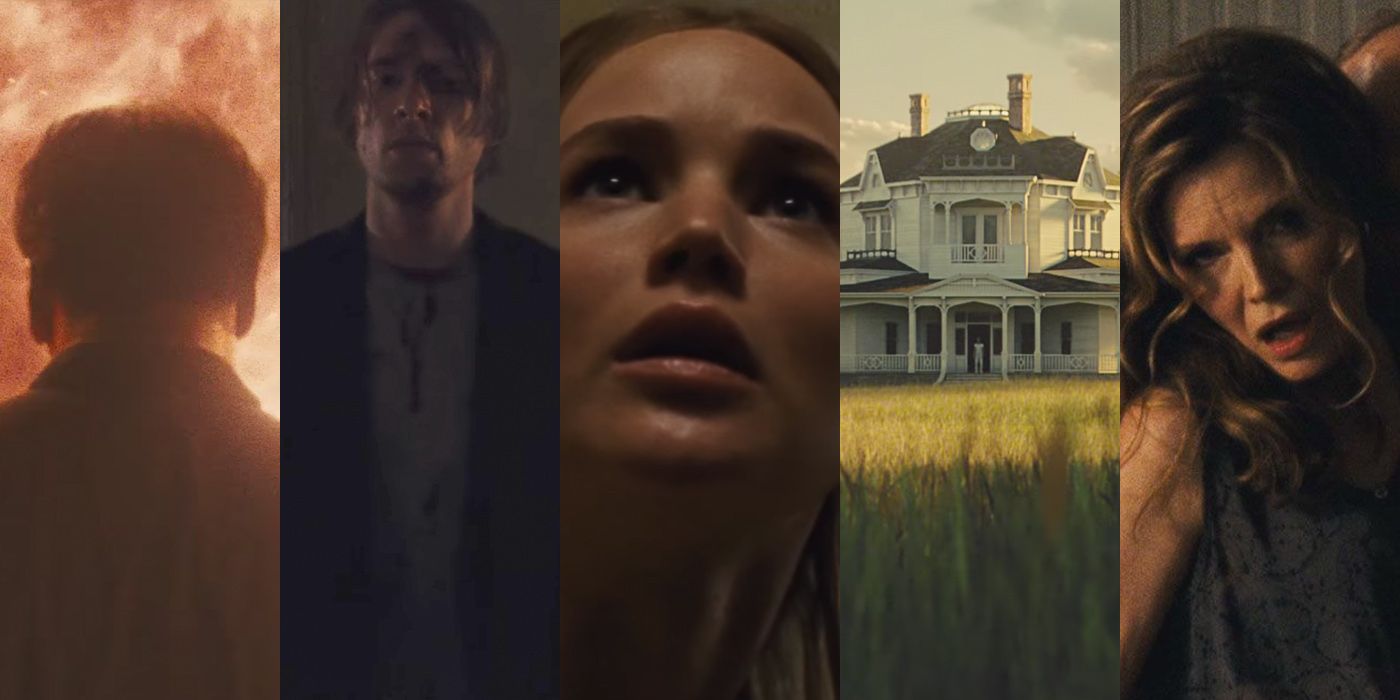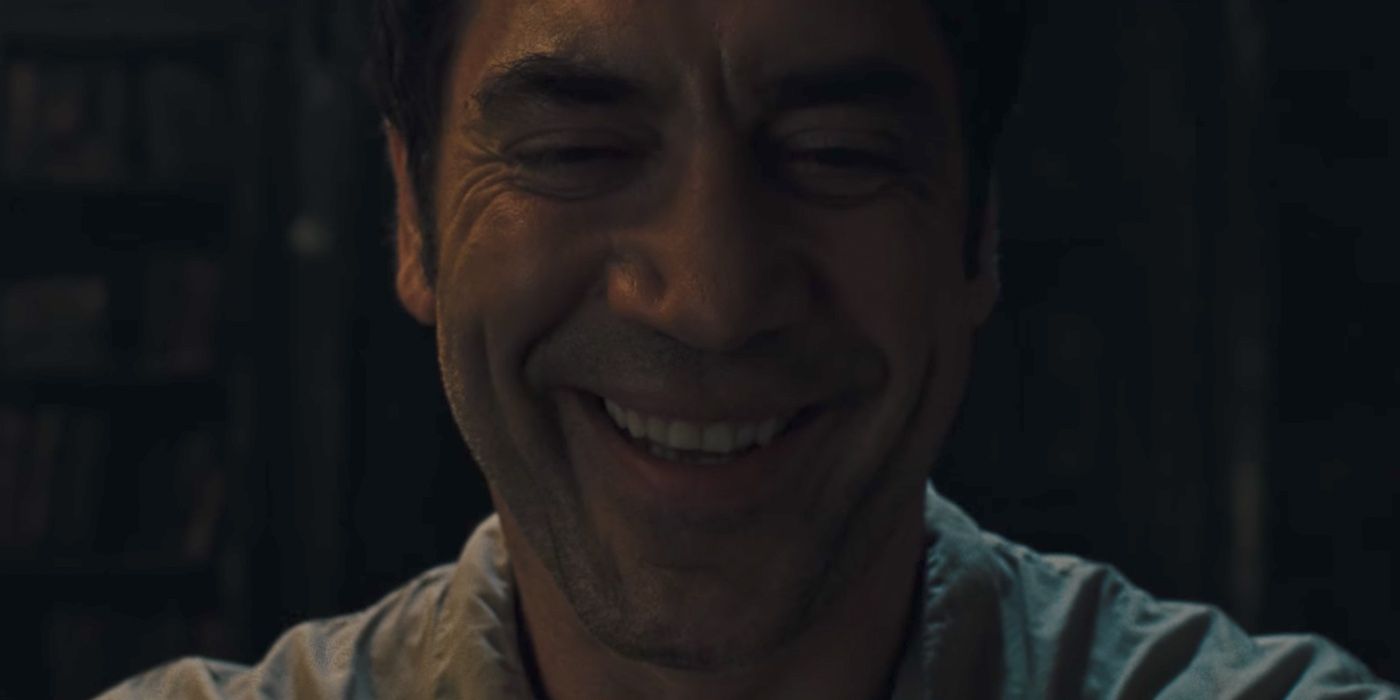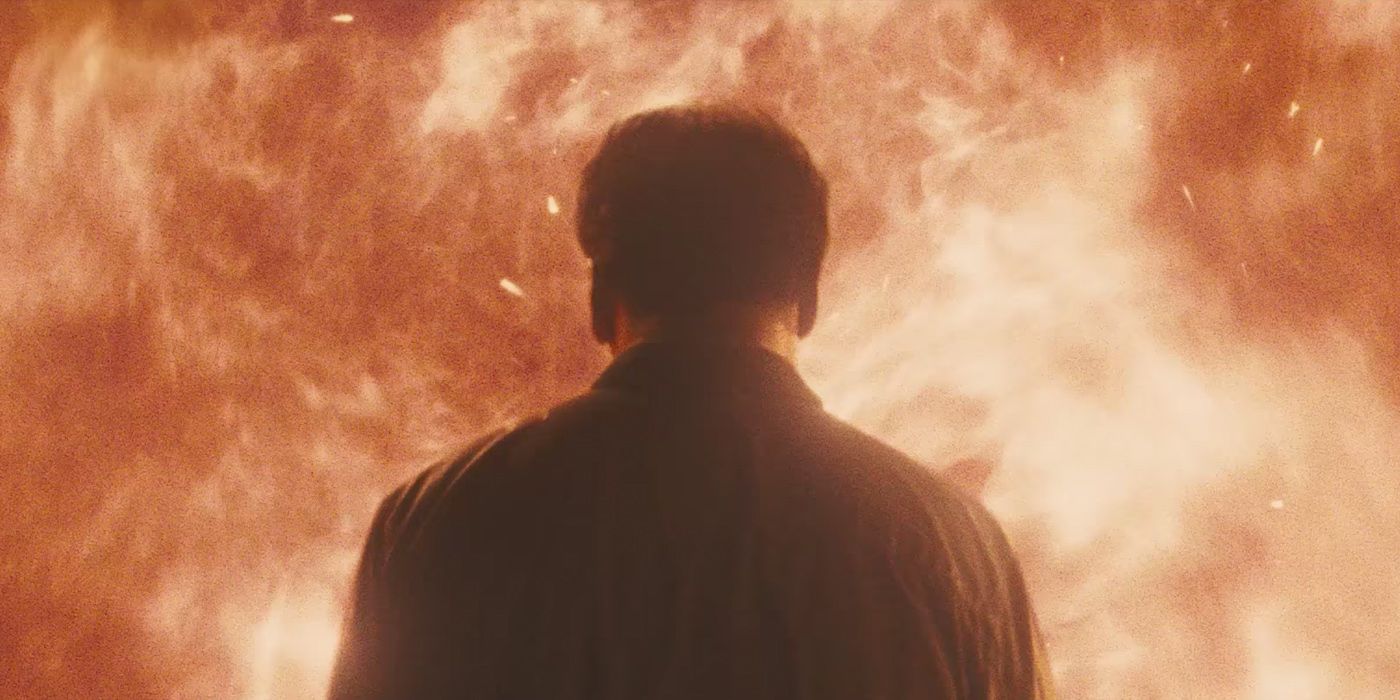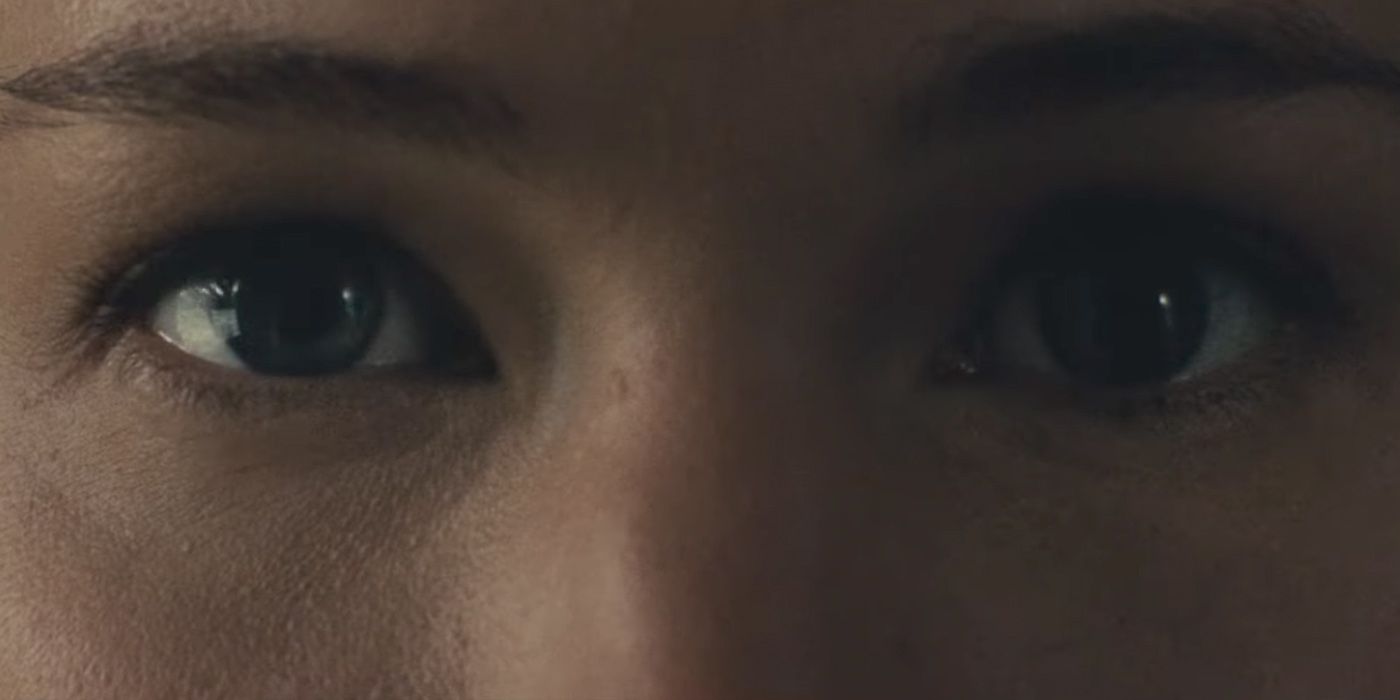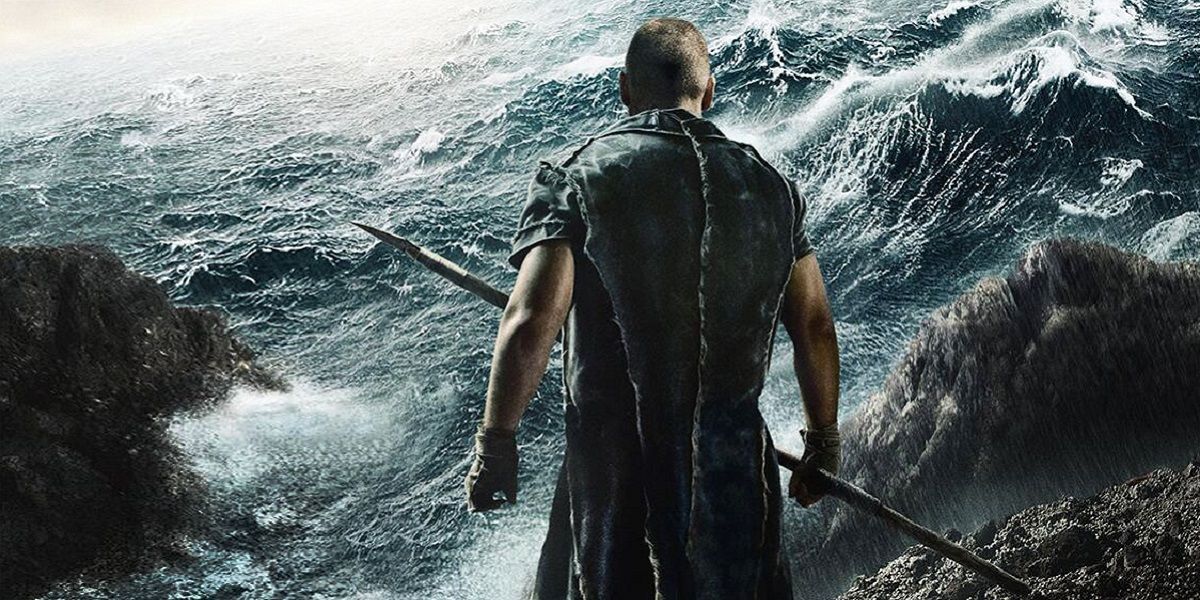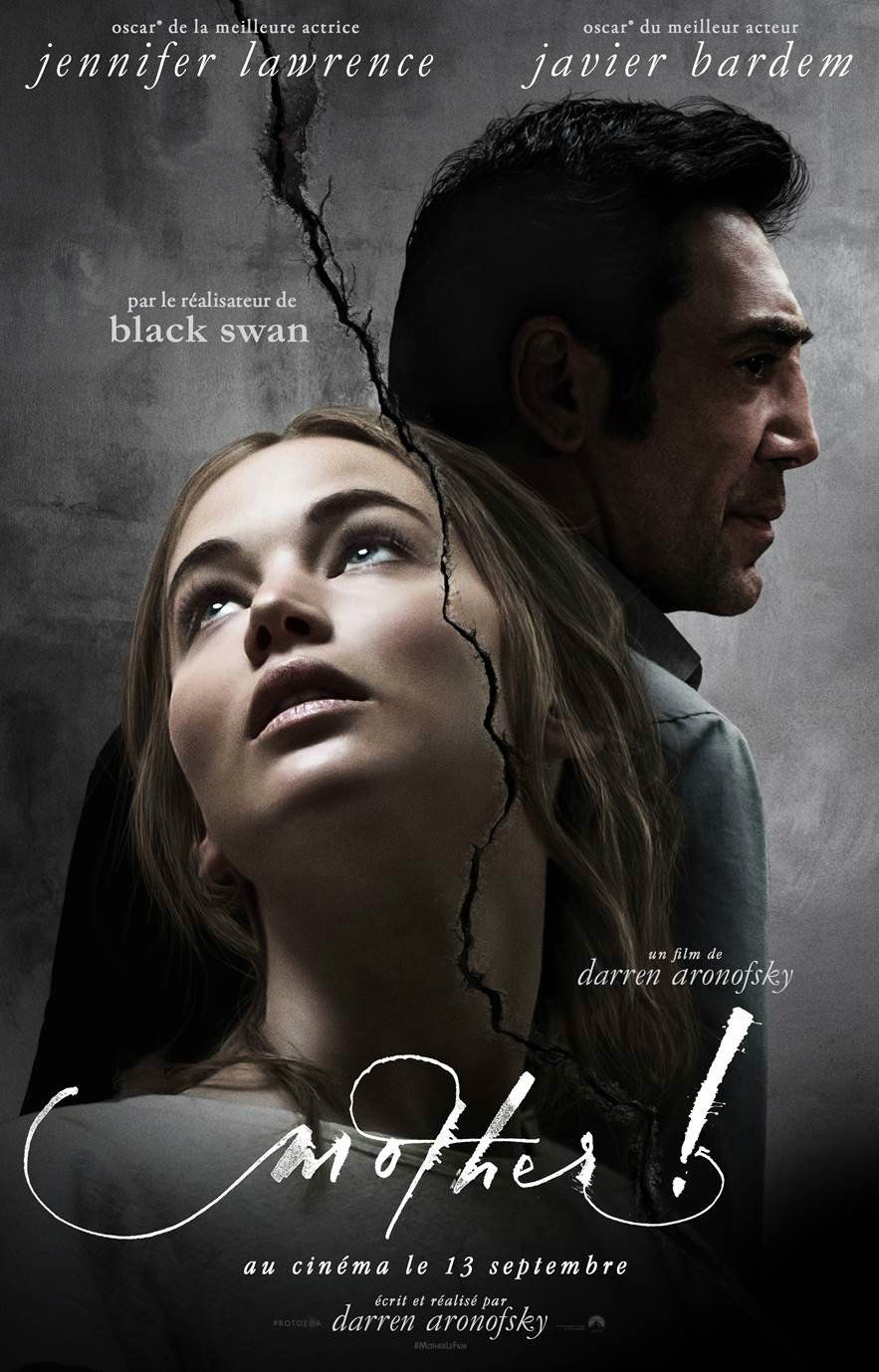Spoilers for mother!
-
Darren Aronofsky's new film mother! tells the story of a woman restoring her writers' blocked husband's house, only for their solitude to be disrupted by an adoring, rule-bending couple, then their deadly bickering sons, and one sudden pregnancy later a horde of fans of his masterwork. Time bends, a baby is taken and she eventually burns the whole thing to the ground, revealing a self-perpetuating time loop.
But that's obviously not what it's really about. Like most of Aronofsky's films, there's the literal plot and the true meaning. Sometimes it's obvious and implicit, as with Black Swan, others it's almost like two parallel viewing experiences. mother! is totally the latter. While the film is great as the basic psychological thriller thriving on anxiety outlined above, it's actually a metaphorical re-imagining of something much grander: mother! is actually a representation of Biblical creation.
How mother! is an Allegory for Biblical Creation
The first half of the story is a twisted version of the Book of Genesis. Indeed, the character names should really highlight the metaphor. Javier Bardem's Him is God, Jennifer Lawrence's mother a representation of creation itself, Ed Harris and Michelle Pfeiffer's unnamed Man and Woman Adam and Eve, and their two children Caine and Abel. That makes His office the Garden of Eden, the house's crystal heart the forbidden Apple, destroying it Original Sin, them being demanded to leave Adam and Eve's removal from Eden, Older Son killing Younger Son Abel's death (right down to the blow to the end) and the ensuing population of the house with increasing disregard for the world's care the rise of their descendants. mother's expulsion of them is further the Great Flood and the brief period of normality the new world.
From here there are two divergent readings. One has the focus on the Holy Bible remain, with the poem some form of scripture - the Ten Commandments, the Lord's Prayer, take your pick - and the ensuing events those told in the later parts of the Old Testament; Exodus and the creation of Israel moving towards the Christian view. That would make the couple's baby Jesus, although his death is less a straight representation of the love and hatred of Christ's execution and more a living out of his dying words "Forgive them for they know not what they do". Of course, rather than absolving of sins, mother fights back and burns the entire thing down. This makes it either an "alternate ending" to the Bible, or with the time loop a sort of proto-creation: God trying over and over to get it right.
Related: What Does The Poem in mother! Say?
The other take is that we accelerate; the fluid, rushed time as mother walks through the increasingly fraught house is meant to signify the passing of centuries and millennia, taking Earth past Biblical times and into the AD, showing the descent of man as it falls into dogma surrounding religious grounding. The poem again serves as some religious doctrine, but here the baby obviously can't be Jesus; it is instead a lucid presentation of a continued offering of the Earth to humanity that is instinctively dove upon and destroyed. And that makes the house's destruction some future cataclysm: an impending Apocalypse.
Basically, the former is a completion of the allegory, whereas the latter's a shift from Biblical setup into cautionary tale. Either version has validity, although while the baby Jesus imagery is strong, we'd be inclined to lean towards the latter as it paints the fiery destruction in the audiences' future, a warning Aronofsky is clearly leaning towards.
What mother! Being About Creation Means
The purpose of this is, in part, to comment on the artistic process. Bardem's character is Aronofsky's avatar - he's a middle-aged artist who feels his work underappreciated by those around him and relishes praise (he's also in a romantic relationship with a much younger Jennifer Lawrence, although director and star didn't start dating in real life until after the script was written) - making mother! a treatise on his feelings towards his profession. He views making a film akin to creating holy text, craves appreciation but registers a parasitic nature amongst audiences and their perceived ownership of the artist. And, in the context of the looping reset ending, admits it's a never-ending cycle of content production.
On a larger canvas, this allegory makes mother! something considerably less ego-driven. Aronofsky is representing the entirety of history on a wholly personal level, showing the ingrained, timeless conflicts that recur over and over. And this is why we prefer the second reading of the allegory as it serves as a warning for how the world stands on the brink and our actions can directly lead to Earth fighting back and our destruction - not just climate change (although the film's release in the wake of Hurricanes Harvey and Irma definitely puts weight on that) - if we don't pay more respect.
Related: mother! Ending Explained
This is something Aronofsky has directly talked about, citing it as the very inspiration for mother!:
"It is a mad time to be alive. As the world population nears 8 billion we face issues too serious to fathom: Ecosystems collapse as we witness extinction at an unprecedented rate; Migrant crises disrupt governments; A seemingly schizophrenic U.S. helps broker a landmark climate treaty and months later withdraws; Ancient tribal disputes and beliefs continue to drive war and division; The largest iceberg ever recorded breaks off an Antarctic ice shelf and drifts out to sea. At the same time we face issues too ridiculous to comprehend: In South America tourists twice kill rare baby dolphins that washed ashore, suffocating them in a frenzy of selfies; Politics resembles sporting events; People still starve to death while others can order any meat they desire. As a species our footprint is perilously unsustainable yet we live in a state of denial about the outlook for our planet and our place on it."
But you could present this in a multitude of ways (indeed, Aronofsky already has, which we'll get to). That he went this route is particularly revealing.
mother! Is a Gender-Swapped View of Creation
With mother!, we get to see creation from a female, Earth perspective. Typically, thanks to society's male historic view in general, the presentation of religious past is incredibly gendered, right down to God being personified as a He. mother! reverses that and gives a hitherto non-existent female counterpoint to the Father. We see the story that entire cultures have been based on from a totally opposite standpoint.
Ostensibly this gives an alternate take on divinity; mother is Earth, but she is also another side of God. And so His destruction isn't some divine plan, but a by-product of the male side's flaws. Indeed, that's the ultimate point here: God is flawed. Bardem's character is vain and accommodating and angry - he's neither the vengeful Old nor passive New Testament creator - and has none of the all-seeing grandeur we typically associate with what he represents. By removing the self-perpetuating male ego, Aronofsky is attempting to show God for what he actually is as written.
This also subverts Aronofsky's "Artist as God" idea - mother! isn't an egotistical proclamation, more an admission of how he can appear pretentious while highlighting the doubt beneath.
mother! Is A Companion Piece to Noah
When we're talking Aronofsky and religion, you have to bring in Noah. mother! is, basically, a thematic sidequel to his 2014 Biblical epic, which ostensibly told the story of the Great Flood but was really about atonement for Original Sin and humanity's inherent evil from that event, running through Abel's death and all sin beyond.
Both are grappling with the inherent metaphor of Biblical creation applied to the modern world and its attitudes, and together highlight that focus in each other. If you're at all entertained by mother! and its thematic richness, go watch Noah.
-
As we've said across our mother! coverage, there are many, equally valid readings of Aronofsky's latest. But based on how prevalent the Biblical metaphors are, how deep their meaning goes and how ingrained the themes are in his previous works, the creation allegory feels the most powerful. This is what mother! is trying to say.

